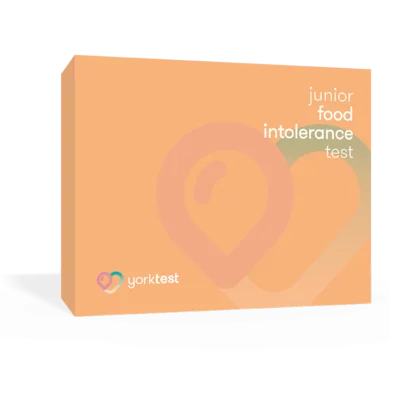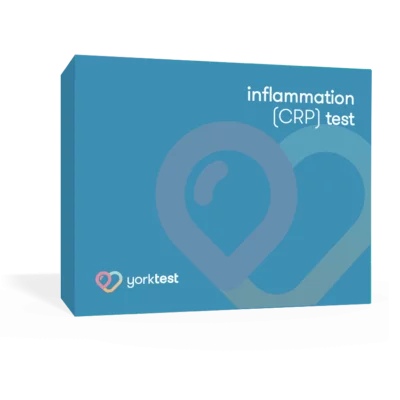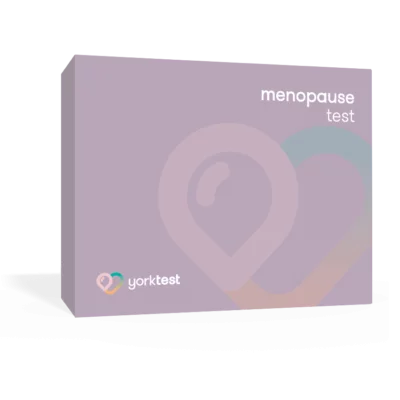
Alcohol Awareness Week: Understanding Alcohol Reactions and the Role of At-Home Testing
- Alcohol Intolerance vs Alcohol Allergy: Whatâs the Difference?
- What Causes Alcohol Intolerance?
- What Causes An Alcohol Allergy?
- Just A Hangover Or Something More? – Signs and Symptoms of Alcohol Intolerance and Allergy
- Alcohol Intolerance Symptoms
- Alcohol Allergy Symptoms
- How To Test for Alcohol Intolerance or Allergy
- Genetic Testing
- At-Home Blood Test Kits
- Testing For An Alcohol Allergy
- How to Treat: Do I Need to Go Sober or Just Cut Down?
- Take Control This Alcohol Awareness Week With Help From Yorktest
7th–13th July marks Alcohol Awareness Week in the UK, a nationwide campaign dedicated to raising awareness around the effects of alcohol on our health and wellbeing.
In the UK, the average adult consumes around 13.3 units of alcohol per week, with many individuals regularly exceeding these recommended guidelines. While most people are aware that excessive alcohol consumption can impact the liver, skin, and mental health, fewer consider whether alcohol could be responsible for other, less obvious symptoms, such as facial flushing, bloating, or fatigue.
Conditions like alcohol intolerance or even alcohol allergy are rarely discussed, yet they could explain why alcohol doesn’t sit well with some people. With food sensitivities on the rise, Alcohol Awareness Week is the perfect time to reflect on your relationship with alcohol and how your body may be reacting to it.
Alcohol Intolerance vs Alcohol Allergy: What’s the Difference?
The terms alcohol intolerance and alcohol allergy are often used interchangeably, but they’re not the same thing.
An alcohol allergy involves the immune system reacting to specific ingredients found in alcohol, such as grains (wheat, barley, or rye) or preservatives like sulphites. This type of reaction can cause symptoms such as itching, swelling, hives, or breathing difficulties. In rare cases, it may even lead to anaphylaxis.
Alcohol intolerance, on the other hand, is usually caused by an issue with how the body metabolises alcohol. This is often due to a deficiency in the enzyme aldehyde dehydrogenase 2 (ALDH2), which leads to a build-up of acetaldehyde, a toxic by-product of alcohol. Symptoms are typically less severe than an allergy and may include flushing, headaches, nausea, and nasal congestion.
What Causes Alcohol Intolerance?
It’s a common misconception that unpleasant reactions to alcohol are simply the result of drinking too much or mixing drinks. In reality, it could be an alcohol intolerance, and many people don’t even realise it.
The most common cause of alcohol intolerance is a genetic deficiency in the ALDH2 enzyme, making it harder for the body to process alcohol properly. However, an intolerance may also be triggered by reactions to specific ingredients, such as yeast, gluten, histamines, or sulphites, or due to interactions with certain medications.
What Causes An Alcohol Allergy?
Although rare, alcohol allergies can occur when the body’s immune system identifies a component in alcohol as harmful. This could include grains, preservatives, or flavouring agents. Unlike an intolerance, allergic reactions are often immediate and can become severe very quickly, so understanding the difference is crucial.
Just A Hangover Or Something More? – Signs and Symptoms of Alcohol Intolerance and Allergy
Alcohol consumption can result in many negative side effects. Sickness and digestive problems can all seem like expected consequences of indulging in a few weekend pints or an occasional mixer. However, the negative effects could be a consequence of something a little more serious, like an alcohol intolerance or allergy.
While an alcohol reaction, such as an intolerance or allergy, can take the form of many different symptoms, some of the most common effects include:
Alcohol Intolerance Symptoms
- Facial flushing (especially cheeks and neck)
- Headaches or migraines
- Nausea or vomiting
- Nasal congestion or a runny nose
- Rapid heartbeat (palpitations)
- Stomach discomfort or bloating
- Low blood pressure or dizziness
- Feeling unusually tired after small amounts of alcohol
Alcohol Allergy Symptoms
- Itchy skin, rashes, or hives
- Swelling of the face, lips, tongue, or throat
- Wheezing or difficulty breathing
- Stomach cramps or vomiting
- Diarrhoea
- Anaphylaxis (in rare, severe cases)
How To Test for Alcohol Intolerance or Allergy
Genetic Testing
Because alcohol intolerance is often linked to a deficiency in the enzymes ADH and ALDH, genetic testing is often used. Genetic testing can identify mutations in the genes responsible. This type of test is usually carried out in a clinical setting, using a blood sample or cheek swab, and analysed in a lab.
At-Home Blood Test Kits
For most people, the symptoms of an alcohol intolerance or allergy are less likely to be caused by a reaction to ethanol (i.e. the type of alcohol within alcoholic drinks), and are more likely caused by ingredient sensitivities. This is where at-home tests, like the YorkTest Premium Food Intolerance Test, can be helpful. They measure your body’s IgG immune response to common ingredients found in alcoholic drinks, including wheat, barley, gluten, rye, hops, yeast, other grains, and fruits. Although they don’t directly test for an alcohol intolerance or allergy, they do help you to establish which ingredients within alcoholic drinks might be causing problems for you.
These tests are quick, convenient, and easy to complete from home. If results highlight a potential intolerance or allergy to one of the ingredients within alcoholic drinks, then our team of experts is available to help guide you through the next steps.
Testing For An Alcohol Allergy
If you believe your symptoms may point to an allergy (usually to an ingredient within common alcoholic drinks), it’s important to consult a healthcare professional. They may carry out skin prick tests, blood tests, or a medically supervised oral challenge to confirm the diagnosis.
How to Treat: Do I Need to Go Sober or Just Cut Down?
There’s no cure for alcohol intolerance, but symptoms can often be managed with lifestyle changes, such as limiting or avoiding alcohol altogether (especially drinks that contain known triggers like sulphites, gluten, or yeast). Keeping a symptom diary and using an at-home intolerance test to pinpoint problematic ingredients can help you better understand which drinks to avoid.
For those with an alcohol allergy, complete avoidance is recommended. Mild symptoms might be treated with antihistamines, but more serious reactions (such as swelling or difficulty breathing) require immediate medical attention.
If you’re unsure whether your symptoms point to an intolerance or allergy, always speak to a healthcare professional for a proper diagnosis and tailored advice.
Take Control This Alcohol Awareness Week With Help From Yorktest
If alcohol consistently leaves you feeling worse for wear, now is the perfect time to take action. At YorkTest, we offer a reliable and easy way to uncover potential food and drink intolerances, including common ingredients found in alcoholic beverages.
Our Premium Food Intolerance Test is a simple, at-home solution designed to help you identify your body’s unique triggers with lab-analysed accuracy and expert follow-up support.
Take control of your health this Alcohol Awareness Week, because knowing what your body needs starts with understanding what it doesn’t.
Contact us to find out more or order your food intolerance test today.









